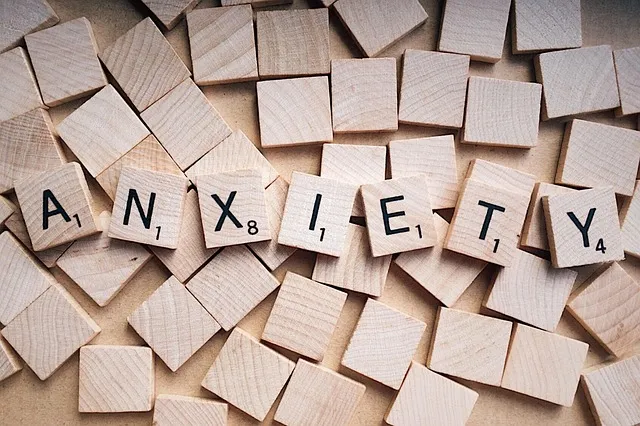In today's fast-paced society, stress is common but manageable through various methods. Littleton's Kaiser Permanente offers mental health services like mindfulness programs, CBT for thought pattern challenges, and personalized strategies combining physical activity with self-awareness. These services empower individuals to enhance emotional intelligence, well-being, and resilience in navigating life's stressors, addressing "Littleton does Kaiser have mental health services?"
In today’s fast-paced world, stress management is more crucial than ever. This comprehensive guide explores various techniques to teach individuals how to navigate and overcome stress effectively. From understanding the root causes—including common triggers identified by Littleton’s Kaiser Mental Health Services—to implementing mindfulness practices and cognitive behavioral techniques, each section equips readers with tools for long-term mental wellbeing. Discover how regular physical activity enhances resilience, fostering a symphony of calm amidst life’s challenges.
- Understanding Stress: Causes and Common Triggers
- Mindfulness Practices for Daily Calm
- Cognitive Behavioral Techniques for Stress Reduction
- Physical Activity and Its Impact on Mental Wellbeing
- Building Resilience: Coping Strategies for Long-Term Management
Understanding Stress: Causes and Common Triggers

Stress is a complex response to various internal and external factors, and understanding its causes is a crucial step in managing it effectively. In today’s fast-paced world, individuals often face numerous stressors that can impact their mental well-being. Common triggers include work-related pressures, financial worries, personal relationships, health issues, and major life changes. For instance, the constant demand for high performance at work or school can lead to chronic stress, affecting both physical and mental health.
When individuals experience stress, it’s essential to recognize that it’s often a sign of unmet needs or challenges. Mental health services, like those offered by Kaiser in Littleton, play a vital role in helping people navigate these challenges. They provide platforms for individuals to learn crisis intervention guidance, engage in mental illness stigma reduction efforts, and work on self-esteem improvement strategies, thereby fostering better stress management techniques.
Mindfulness Practices for Daily Calm

In today’s fast-paced world, stress has become an inescapable part of our daily lives, but it doesn’t have to control us. Incorporating mindfulness practices into your routine can offer a powerful tool for managing stress and finding daily calm. This ancient technique encourages individuals to focus on the present moment, cultivating awareness of thoughts and sensations without judgment. For instance, simple breathing exercises or mindful walking can help reset the mind and body, offering moments of tranquility amidst the chaos.
Litleton’s Kaiser Permanente, recognizing the importance of mental health services, provides resources for stress management, including programs that teach mindfulness practices. These techniques are not just a panacea but evidence-based tools that have been shown to reduce anxiety and improve overall mental wellness. Moreover, engaging in regular mindfulness exercises can enhance one’s ability to cope with stressful situations, leading to better resilience and improved quality of life. So, whether you’re a mental health professional looking for risk management planning or an individual seeking confidence-boosting strategies, mindfulness offers a practical and accessible way to navigate the challenges of daily living.
Cognitive Behavioral Techniques for Stress Reduction

Cognitive Behavioral Techniques (CBT) offer a powerful tool for stress management and are readily available through mental health services like those provided by Kaiser in Littleton. CBT focuses on identifying and changing negative thought patterns and behaviors that contribute to stress, anxiety, and depression. By challenging these distorted thoughts, individuals can gain a more balanced perspective, leading to improved mood management and emotional intelligence.
One of the key aspects of CBT is learning effective communication strategies. This involves expressing feelings and needs assertively while also listening actively to others. Such skills are crucial for navigating interpersonal relationships and reducing stress stemming from miscommunication or conflict. Through these techniques, individuals can foster healthier connections, improve their overall well-being, and create a more positive and supportive environment in both personal and professional settings.
Physical Activity and Its Impact on Mental Wellbeing

Physical activity is an effective stress management technique that can significantly enhance mental wellbeing. Regular exercise releases endorphins, often referred to as “feel-good” hormones, which can reduce stress and improve mood. Studies show that engaging in physical activities like walking, jogging, or yoga can lower levels of cortisol, a hormone linked to stress and anxiety. This effect is particularly notable when combined with mindfulness practices, such as self-awareness exercises, where individuals focus on the present moment during movement.
Litttleton’s Kaiser Permanente offers mental health services that include personalized strategies for burnout prevention. By incorporating regular physical activity into their routines, individuals can better manage stress and promote overall mental health. This is especially important in today’s fast-paced world where burnout is a growing concern. Positive thinking and self-awareness exercises, when practiced alongside physical activity, can create a holistic approach to stress management that resonates with many seeking mental wellbeing.
Building Resilience: Coping Strategies for Long-Term Management

Building resilience is a key aspect of long-term stress management, and it’s an area where institutions like Kaiser in Littleton can play a vital role. The mental health services offered by such organizations provide individuals with effective coping strategies to navigate stressful situations over time. Through counseling sessions and programs focused on social skills training, participants learn to enhance their emotional intelligence and communication strategies, enabling them to manage stress proactively.
By integrating these techniques into daily routines, individuals can develop a stronger sense of resilience, allowing them to face challenges head-on. Stress reduction methods taught in these services empower people to recognize triggers, implement healthy coping mechanisms, and foster positive thinking patterns. This holistic approach ensures that individuals not only cope with current stressors but also build lasting strategies for overall well-being.
Stress management is a vital component of overall well-being, and the techniques discussed in this article offer valuable tools for navigating life’s challenges. Whether it’s understanding stress triggers, practicing mindfulness, or adopting cognitive behavioral strategies, individuals can take control of their mental health. In terms of finding support, both Littleton and Kaiser offer mental health services, providing accessible resources for those seeking guidance. Ultimately, by combining these practices with regular physical activity, one can build resilience and foster a healthier, calmer mind.






